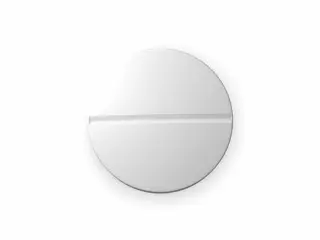Diabetes
Find a wide range of effective diabetes medications, insulin, glucose monitors, and supplements to help manage your blood sugar levels and support your health. Shop trusted brands with convenient delivery options.
Diabetes is a chronic condition that affects how your body processes blood sugar. Managing diabetes often requires medication alongside diet and exercise. Various drugs are prescribed to help control blood sugar levels and prevent complications. Below is a review of some popular medications used in diabetes treatment.
Actos (pioglitazone) belongs to the class of thiazolidinediones. It works by improving insulin sensitivity in muscle and fat cells. This drug helps lower blood sugar in people with type 2 diabetes. Actos is often prescribed when other medications are not enough. It is taken once daily, with or without food. Common side effects include weight gain, fluid retention, and risk of bone fractures. Patients with heart failure should use caution.
Amaryl (glimepiride) is a sulfonylurea that stimulates the pancreas to release more insulin. It is effective for type 2 diabetes and helps reduce fasting and post-meal blood sugar. Amaryl is usually taken once a day before breakfast. Low blood sugar (hypoglycemia) is a common risk. Weight gain may also occur. It is important to monitor blood sugar closely when starting or adjusting this medication.
Glucophage (metformin) is one of the most widely used diabetes drugs. It belongs to the biguanide class. Metformin lowers blood sugar by reducing glucose production in the liver and improving insulin sensitivity. It is usually the first choice for people with type 2 diabetes. Glucophage can also promote modest weight loss. Side effects include gastrointestinal issues such as diarrhea and nausea. Taking it with meals may reduce these effects. It rarely causes hypoglycemia when used alone.
Glucophage SR is a sustained-release form of metformin. This version allows for once-daily dosing and usually causes fewer stomach problems. It is beneficial for patients who experience side effects with immediate-release metformin. Blood sugar control with Glucophage SR is similar to the regular form. Patients need to swallow the tablets whole, without crushing or chewing.
Glucotrol (glipizide) is another sulfonylurea used to increase insulin release from the pancreas. It is effective in lowering blood sugar in type 2 diabetes. Glucotrol has a short duration, so it is often taken before meals. There is an extended-release version, Glucotrol XL, which offers once-daily dosing. Risks include low blood sugar and weight gain, similar to other sulfonylureas. Patients should be aware of hypoglycemia symptoms such as sweating and dizziness.
Glucovance combines metformin with glyburide, a sulfonylurea. This combination targets blood sugar through two mechanisms: reducing glucose production and increasing insulin release. Glucovance is used when single drugs do not provide enough control. It should be taken with meals to minimize stomach upset. Hypoglycemia risk is higher due to glyburide. Monitoring blood sugar frequently is important when using this medication.
Glycomet is another brand of metformin. It shares the same benefits and side effects as Glucophage. Metformin, including Glycomet, is often combined with other diabetes medications to improve overall control. It is not suitable for patients with kidney problems or severe liver disease due to risk of lactic acidosis.
Micronase (glyburide) is a sulfonylurea that helps the pancreas release insulin. It is effective in lowering blood glucose levels. Micronase is usually taken once or twice daily before meals. It carries a risk of hypoglycemia and weight gain. Patients should keep a source of fast-acting sugar on hand in case of low blood sugar.
Prandin (repaglinide) belongs to the meglitinide class. It stimulates quick insulin release after meals. Prandin is taken right before eating. Its short action reduces the risk of low blood sugar between meals. However, missed meals may lead to hypoglycemia. This medication is useful for patients with irregular eating schedules. Side effects include low blood sugar and weight gain.
Precose (acarbose) is an alpha-glucosidase inhibitor. It works by slowing down carbohydrate digestion in the intestines. This results in lower post-meal blood sugar spikes. Precose must be taken with the first bite of a meal. Side effects include gas, bloating, and diarrhea. These often improve over time. Precose does not cause hypoglycemia when used alone but may require adjustments if combined with other drugs.
Rybelsus (semaglutide) is a newer drug in the GLP-1 receptor agonist class. It is taken orally once daily. Rybelsus helps lower blood sugar by increasing insulin release when glucose is high and reducing appetite. This medication may promote weight loss. Common side effects are nausea, vomiting, and diarrhea. Rybelsus is beneficial for patients who want to control diabetes and lose weight. It may also reduce heart risks in some patients.
Choosing the right diabetes medication depends on many factors. These include blood sugar levels, presence of other health conditions, risk of side effects, and patient preferences. Many patients benefit from combination therapy. Regular monitoring and consultation with a healthcare provider are essential.
Most diabetes medications require lifestyle changes to be effective. Healthy eating, regular physical activity, and weight control improve medication results. Patients should understand possible side effects and report any unusual symptoms. Managing diabetes carefully reduces the risk of complications like heart disease, nerve damage, and kidney problems.
In summary, medications like Actos, Amaryl, Glucophage, Glucotrol, Glucovance, and Rybelsus offer various mechanisms to help manage blood sugar in type 2 diabetes. Each has benefits and risks. Your healthcare provider will guide you toward the best option based on your needs. Proper use and follow-up improve quality of life for people with diabetes.














